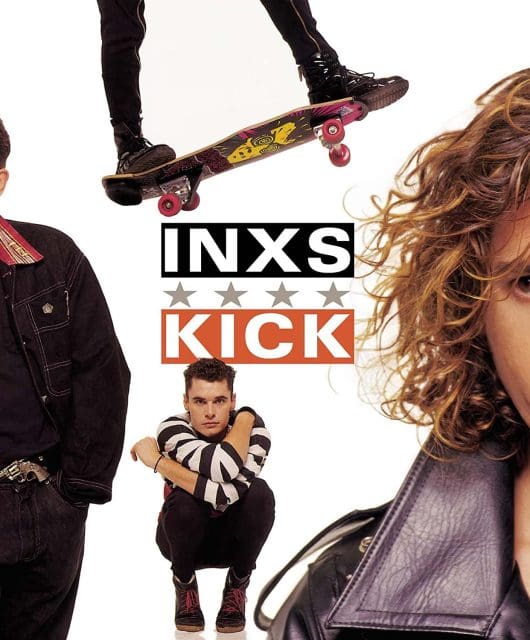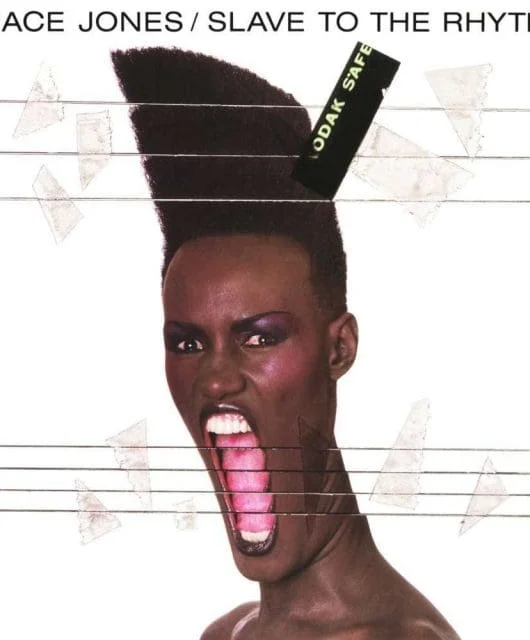Jamiroquai albums – the complete guide
By Steve Harnell | February 21, 2022
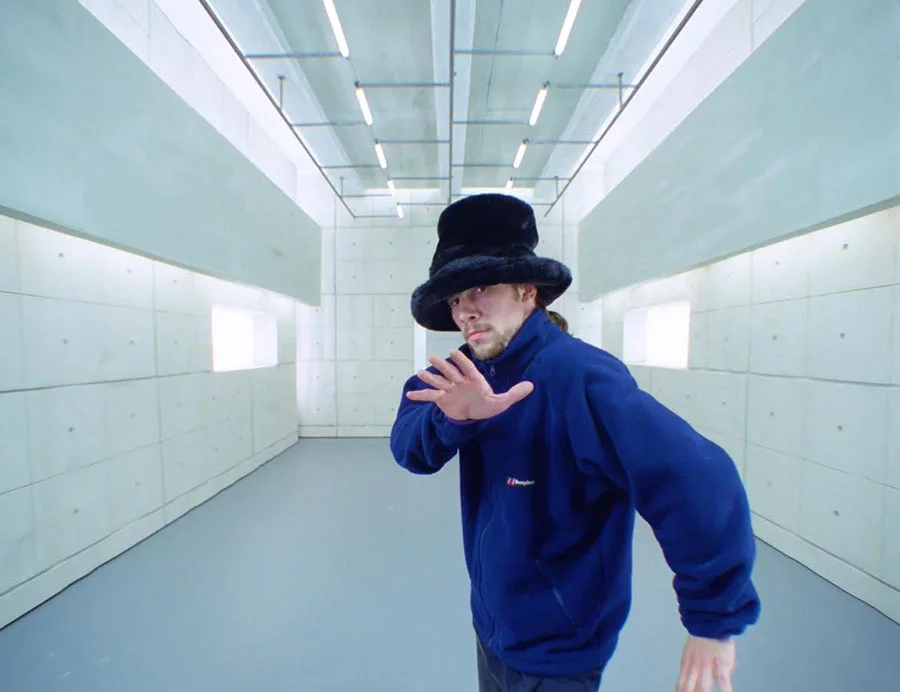
Led by supercar-loving eco warrior Jay Kay, the Jamiroquai albums merged 70s funky soul with disco and electro…
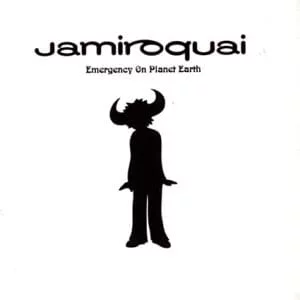
Emergency On Planet Earth
Released 1993
Chart Positions
UK No.1 US –
Acid Jazz was already a well established and much-loved global movement by the time that Jamiroquai, helmed by the self-proclaimed “cat in the hat” Jay Kay, swaggered on to the scene in the early 90s. His band may have ticked all of the retro soul/funk boxes but Kay’s headline-generating early interviews and eco warrior-themed songs took them to another level. Kay was the ringleader of an ever-evolving line-up and his identity as a frontman and songwriter dominates Jamiroquai’s legacy.
Debut single When You Gonna Learn?, didgeridoo intro and all, was an anti-corporate ecological anthem that grabbed the public’s attention from the get-go helping to propel the band’s debut album to No.1 on home soil.
Pretty Philly strings ease you in to second single and further LP highlight, Too Young To Die, but its easygoing groove smuggles a passionate anti-war lyric into the mix. The politics continue on the defiant If I Like It, I Do It, which delivers a similar middle finger to the incumbent Government’s anti-rave Criminal Justice Bill as The Prodigy’s Music For The Jilted Generation.
Initial brickbats aimed at Jay Kay labelled him a Stevie Wonder copyist, although as the band’s sound has evolved over the years that criticism has faded as the singer’s love of vintage soul and funk has been found to be wholly authentic.
A respectful nod to Wonder on mid-album pause for breath Music Of The Mind showcases Jamiroquai’s flair for authentic-sounding taut jazz-funk grooves.
Hooked Up debuted a recurring Jay Kay lyrical theme, that of music as a drug, set inside a slinky blaxploitation vibe while Whatever It Is, I Just Can’t Stop finds the band returning to the stop-start funky riffs made famous by The Meters. Blow Your Mind, meanwhile, changes gears for a sexy Rhodes keyboard-led ballad.
Jamiroquai’s debut, though, is dominated by concerns more pressing than the bedroom. The title track boasts disco strings and choppy guitars but Jay Kay’s message comes through loud and clear – this is funk with a political edge that reconnected to the socially conscious 70s output of soul music’s most vital artists.
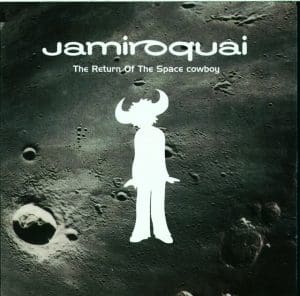
The Return Of The Space Cowboy
Released 1994
Chart Positions
UK No.2 US –
A confident evolution that turned the page from their debut, you’d never guess that The Return Of The Space Cowboy had such a fraught genesis story.
With Jay Kay suffering from writer’s block, Second Album Syndrome kicked in with a vengeance as the band laboured to create a follow-up to their million-selling debut LP – vast swathes of material was either scrapped or rewritten entirely.
They overcame that struggle, though, and the resultant album oozes confidence from the ambitious nigh-on nine-minute opener Just Another Story where Jay Kay gives us the full Tarantino treatment on a gritty tale of a teenage criminal. He digs deep for the confessional Half The Man, penned about his twin brother who died shortly after birth. The mournful Sly & The Family Stone-style ballad also doubles up as a simple love song of longing and loss.
The band stretch out and absorb Latin flavours into the deceptively graceful Stillness In Time, written by Kay while at his lowest ebb. “The sweetness of [the song] was really wishful thinking; a hope that things would get better,” the singer explained. Meanwhile, Toby Smith’s piano shines on the thumping riff of Light Years as a testifying Kay channels Gil Scott-Heron.
Kay came up with the lyrics to Manifest Destiny after reading Dee Brown’s history of Native American culture Bury My Heart At Wounded Knee, its mellow bass-led groove finding the frontman in reflective mode.
As a nice counterpoint, it’s followed by the breakneck James Brown-sampling attack of The Kids, a second protest song against the Criminal Justice Bill that followed Emergency’s… If I Like It, I Do It. The didgeridoo instrumental Journey To Arnhemland reconnects this album to its predecessor and there’s a lilting 70s comedown vibe to Morning Glory.
Space Cowboy, presented here in a different form to the hit single version, is another lyrical Trojan Horse. Far from a love letter to the pleasures of weed, “it was about was someone who was very lost, trying to hang on and come back before he drifted off into a black hole never to be seen again,” Kay admitted.
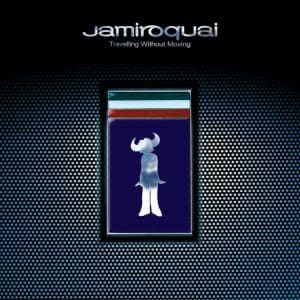
Travelling Without Moving
Released 1996
Chart Positions
UK No.2 US No.24
Can you really be taken seriously as an eco warrior if you’ve got an enormous collection of supercars in the garage of your country mansion? “People say, ‘Jay you’ve got 14 cars, how unenviromentally friendly,’” Jamiroquai’s frontman stated in Esquire. “But you can’t drive them all at once. Even if I’m driving one, there’s 13 that somebody else can’t because they’re mine…” Move along, nothing to see here…
Described as an album about “cars, life and love” Travelling Without Moving is the biggest-selling funk record of all time, shifting an impressive eight million copies worldwide. Jamiroquai never looked back.
Second single Virtual Insanity, assisted by its innovative video, was its watershed moment. A warning about the perils of invasive technology and genetic engineering, this was the latest in Jamiroquai’s string of passionate protest songs.
There on in, there’s a lightening of tone, from the sci-fi puns of disco thriller Cosmic Girl and the irresistible Use The Force, that added scratchy blaxploitation guitars to its exotic samba rhythms.
By now, Jay Kay and co-songwriter Toby Smith’s talents for penning sophisticated disco pop was at its apex, Alright boasts another classic glitterball chorus while the booming bassline and funky vamps of High Times deliver another anti-drug message song you could still cut some rug to.
Kay tries on his Bob Marley impersonation for size on the band’s first foray into reggae, Drifting Along, while the title track wraps its leather driving gloves around the kind of movie chase scene that Lalo Schifrin could have soundtracked in the 70s. David Holmes was clearly taking notes for his acclaimed Ocean’s Eleven soundtracks, too.
Didgeridoo-led tracks Didjerama and Didjital Vibrations feel like padding, although the latter does possess a rather nice Air-like chilled 90s vibe. They feel like the only place where the band are treading water.
Wholly reflected in its global success, this was a record that hit the freeways and was burning rubber in top gear.
Read more: Top 1981 singles
Read more: Top 40 Pet Shop Boys songs
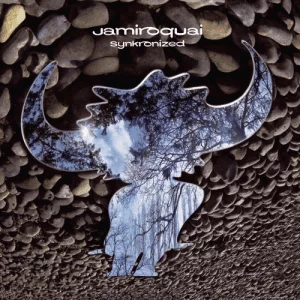
Synkronized
Released 1999
Chart Positions
UK No.1 US No.28
Maintaining Jamiroquai’s habit of kicking off their albums in immediately arresting fashion, stunning disco opener Canned Heat, with its Chic strings and juggernaut chorus is effectively Saturday Night Fever recast for the late 90s, a theme repeated on fourth track Soul Education that similarly extols the virtues of living life on the dancefloor.
The introduction of subterranean electro basslines which would reach its zenith on Godzilla soundtrack song Deeper Underground fuels the undercarriage of Planet Home and adds another texture to the mix.
Jay Kay returns to confessional songwriting for the horn section-assisted Black Capricorn Day while the delicate Rhodes-driven Falling acts as a nice low-key counterpoint. 70s sci-fi funk instrumental Destitute Illusions throws a little turntablism into the mix and the didge is back once more for Supersonic – Wallis Buchanan’s final appearance on the band’s albums to date.
And it wouldn’t be the only changing of the guard. Bassist Stuart Zender left the band in late 1998 part way through recording the LP, chronicled by the cutting “tribute’ closing track King For A Day. Sample lyrics: “There’s no love ever to be lost between us/ I guess this is because the damage you’ve done is so grievous.”
Nick Fyffe seamlessly fitted in on bass to fill the hole left by the departing Zender.
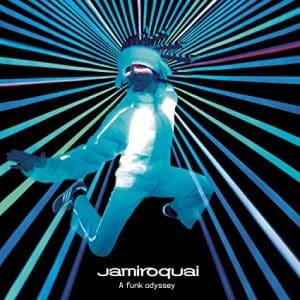
A Funk Odyssey
Released 2001
Chart Positions
UK No.1 US No.44
The sci-fi disco funk of Daft Punk becomes a dominant reference point on Jamiroquai’s fourth album as the band toughen up their sound to create something more explicitly club-friendly.
Electro opener Feel So Good is a quintessential statement of intent, less organic than much of their previous work but precision-tooled to shine on the dancefloor. Extending the sentiments of Canned Heat, once again Jay Kay extols the virtues of dance music.
Likewise, the influence of Daft Punk also informs the positive vibes of You Give Me Something, its gradually emerging phased vocoder backing vocals a trademark move from Guy-Manuel de Homem-Christo and Thomas Bangalter; Twenty Zero One finds Jamiroquai filtered through a club-centric lens that could have come from the block rockin’ beats of The Chemical Brothers.
The split personality Corner Of The Earth melds a grandiose Middle Eastern strings-laden intro to graceful bossa nova rhythms, Jay Kay returning once again to his lyrical interest in the power of nature.
Treated, overdriven guitars and a thumping bassline power the urgent Stop Don’t Panic, which hints at the fact that everything wasn’t all sweetness and light in Jay Kay’s world: “I’m a tiger in a cage, so set me free/ How do I stop this crazy rage from eating me?”
It turned out lead single Little L had already given us a hint of his personal problems. Written about his split with girlfriend Denise van Outen over his cocaine habit, Jay explained to Esquire magazine: “[Little L] encompasses one day of my relationship with Denise. Not the whole thing. ‘You make me love you with a little L, I can’t understand what you want from me.’ Which is what it was like with Den.”
Beverley Knight, who went on to cover When You Gonna Learn for her Soul UK album of 2011, contributes backing vocals for floorfiller Love Foolosophy and the classic disco vibes reappear for Main Vein.
If much of A Funk Odyssey spends its time on the dancefloor, there was still space for variety, too. The acoustic Black Crow and José Feliciano stylings of break-up ballad Picture Of My Life hints more explicitly at Kay’s current emotional turmoil.
Read more: Grace Jones albums – the complete guide
Read more: Top 40 New Romantic songs
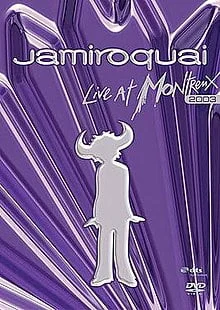
Live At Montreux
Released 2003
Chart Positions
UK – US –
Regular visitors to the world-renowned jazz festival over the years, Jay Kay and his seven-piece band were at the top of their game for this appearance back in 2003.
Songs are double or even three times the length of their studio incarnations as the band stretch out elegantly to show off their jazzy chops in full. They’re even confident enough to premiere rarity Shoot The Moon, written just the day before this show.
Immediately winning the crowd over with a 10-minute version of Use The Force, Rob Smith shines on strident lead guitar, it’s a well-chosen setlist that finds space for the likes of Mr Moon, Soul Education and Just Another Story. They beef up the bass on High Times and get on the good foot for the disco good times of Little L. Building in plenty of space for instrumental solos, Matt Johnson gets his own showcase for a nicely laidback Blow Your Mind.
In the main, though, this is a band very much on the attack as these live versions are delivered with real punch and power.
If thunderous closer Deeper Underground was any more on fire, Deep Purple would have to pen a sequel to Smoke On The Water…
Read more: Top 40 Stevie Wonder songs
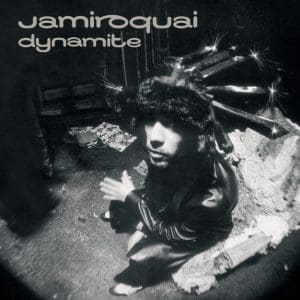
Dynamite
Released 2005
Chart Positions
UK No.3 US No.145
Released in the wake of Jamiroquai gaining renewed hipster cachet following Canned Heat’s inclusion at the end of cult indie movie Napoleon Dynamite, two killer singles are the highlights on yet another stylistically diverse collection from the band.
Feels Just Like It Should kicks off the album in thumping style – it was a No.1 hit on the US Billboard dance chart for good reason – a treated beatbox and electro intro ushers in another absolute banger. On the flipside of the Jamiroquai sound, the summery acoustic vibe of Seven Days In Sunny June is a relaxed treat, although the word “bomb” in “why d’you have to drop the bomb on me” was cut in light of the 7/7 London terrorist attacks.
Further explorations in tweaking their traditional soul funk template keep us on our toes. Hard-hitting club stomper Electric Mistress is another monster, with dashes of Giorgio Moroder-esque electro liberally sprinkled into the mix. Jay Kay ladles on some Led Zep-style sexual innuendo for the double entendre-laden Black Devil Car that boasts Rob Harris on hard rockin’ guitar.
Slow jazz ballad Tallulah, all slinky flutes and Rhodes piano, rolls by languorously with a sinuous low end courtesy of bassist Randy Hope-Taylor.
The John Lennon-referencing (Don’t) Give Hate A Chance returns to more familiar territory, a wriggling bassline and choppy, funky guitars – Jamiroquai’s knack for an instant earworm chorus still shows no sign of abating.
There are the odd missteps, though. The title track over-eggs its chorus and outstays its welcome while Time Won’t Wait may boast some sexy strings but lacks the hooks that the band seemed to be able write in their sleep. World That He Wants comes replete with a swelling string section but doesn’t particularly go anywhere interesting melodically.
There’s a slight drop-off in songwriting quality in places but enough highlights on balance to see Dynamite over the line.
A healthy chart placing of No.3 on home soil proved fan appetite for the band was still strong.
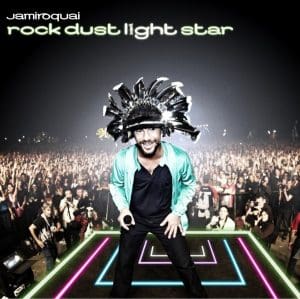
Rock Dust Light Star
Released 2010
Chart Positions
UK No.7 US –
There’s a slightly more classic rock-ist edge to parts of Rock Dust Light Star as Jamiroquai incorporate elements of Roxy Music, disco-era Rod Stewart and The Rolling Stones into their approach. Those changes are incremental, though – Jay Kay doesn’t throw the baby out with the bath water for anything transformational. All the essential elements of Kay’s band are still present and correct.
Working from a pool of 30 original songs, the band whittled them down to a more manageable dozen with producers Charlie Russell and Brad Spence at Jay Kay’s home studio in Buckinghamshire, Hook End Manor in Oxfordshire, and Karma Studios in Thailand. Improving on the patchiness of predecessor Dynamite, the band are pretty much firing on all cylinders once again here.
The opening title track pre-empts the organic warmth of Daft Punk’s Random Access Memories and the cautionary tale of White Knuckle Ride plays to the band’s strengths as masters of sleek disco-fied funk.
Jim Corry provides a rather sassy 80s sax solo for Smoke And Mirrors and bassist Paul Turner dazzles on the supremely funky All Good In The Hood.
Meanwhile, Hurtin’ could well be the most striking performance of Kay’s career, his trademark smooth style replaced by Method Acting-like wracked vocals for a break-up ballad that tugs at the heartstrings: “How the hell did I lose you? Head’s not right/ Much too loose, it’s not screwed on tight.”
Orchestrated ballad Blue Skies gives evidence of Jamiroquai’s commercial pop nous but it’s trumped by the more incisive Lifeline, a swaggering brass-heavy tune that could almost have emerged from Britpop. The band even mine the taut rock-funk rhythms of Survivor’s Eye Of The Tiger for She’s A Fast Persuader.
Meanwhile, Kay returns to pick over the scab of his split with van Outen for reggae tune Goodbye To My Dancer and there’s a late-night smoky feel to the sultry Rhodes ballad Never Gonna Be Another.
The multi-part closer Hey Floyd leaves us on an impressive note. Its unexpected reggae middle-eight at the 90-second mark sells us all a dummy. Even after almost 20 years, Jamiroquai were still capable of pulling off the odd surprise.
Read more: Top pop songs of 1982
Read more: Top 40 Kate Bush songs
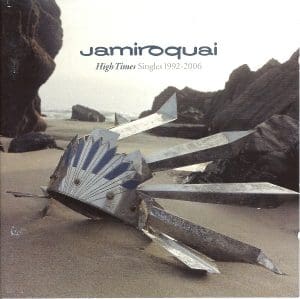
High Times: Singles 1992-2006
Released 2012
Chart Positions
UK No.1 US –
In its original incarnation, this 19-track affair is all killer and no filler. As one of the most consistent singles bands across the last three decades, Jamiroquai could always be relied upon to throw down two or three stellar 7″s on every studio album. Never released on vinyl – the record label needs to rectify that pronto – few bands can match this as a greatest hits compilation song-for-song.
Presented in chronological release order, it’s a neat snapshot of the band’s evolution as they take on electro, rock and club-friendly influences. A full version of the band’s only UK No.1, the superb Deeper Underground makes this an essential purchase.
Head to the Deluxe Edition for new twists via 10 remixes from across their career. Emergency On Planet Earth is handed a percussive reboot by Masters At Work for the London Rican Mix and David Morales adds a few sampled gimmicks to Space Cowboy. Knee Deep’s Re-Edit of Love Foolosophy maximises its four-to-the-floor potential, Bob Sinclar tweaks Little L into a house anthem and erstwhile Amy Winehouse producer Salaam Remi provides a soulful new slant on Virtual Insanity.
Blacksmith add R&B textures to You Give Me Something for the boldest refit and Phil Asher turns the piledriver aspects of Supersonic up to 11.
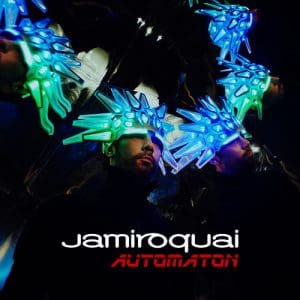
Automaton
Released 2017
Chart Positions
UK No.4 US No.94
Now that’s what we call a hat – Jay Kay’s illuminated robotic headgear specially created for this comeback was as dazzling as its associated album. Arriving a full seven years after its predecessor, the biggest gap between LPs in Jamiroquai’s back catalogue, Automaton was a plea for humanism in the face of the rise of artificial intelligence. Kay expressed concerns about “how we as humans are beginning to forget the more pleasant, simple and eloquent things in life and in our environment including our relationship with one another as human beings.”
Yet Automaton wasn’t a return to a more organic sound for the band. Its lead single and title track was a sci-fi banger sprinkled with electro glitches, pulsing synths and stop-start rhythms. It was a classic return and one that boded well for the album which didn’t disappoint. The EDM influences of Daft Punk return for Shake It On, but with enough of Jamiroquai’s own essence in there to take it somewhere new.
In an extremely consistent first half of the album, the classics keep on coming, from the sophisticated soul funk of the glorious Cloud 9 that lives up to its skyscraping title and the good-time disco of Superfresh. Don’t expect any great lyrical insights here, though, it’s just a floorfilling groove to get you on your feet.
The club-friendly pounder Hot Property continues the dance-centric slant of Automaton before Jay Kay takes his foot off the gas for the pop soul of Something About You and elastic funk of Summer Girl.
You’ll hear chiming echoes from Blondie’s Rapture buried in the mix for the kinetic funk of Nights Out In The Jungle with old school hip-hop scratching thrown in to hammer home the point further. We Can Do It could have come from the pen of the Groove Armada lads while Kay returns to his roots for Carla, a clear homage to the 70s synth grooves of Stevie Wonder. Ultimately, no matter how far he strays, he always comes back to the retro soul source.
Read our review of Automaton here


